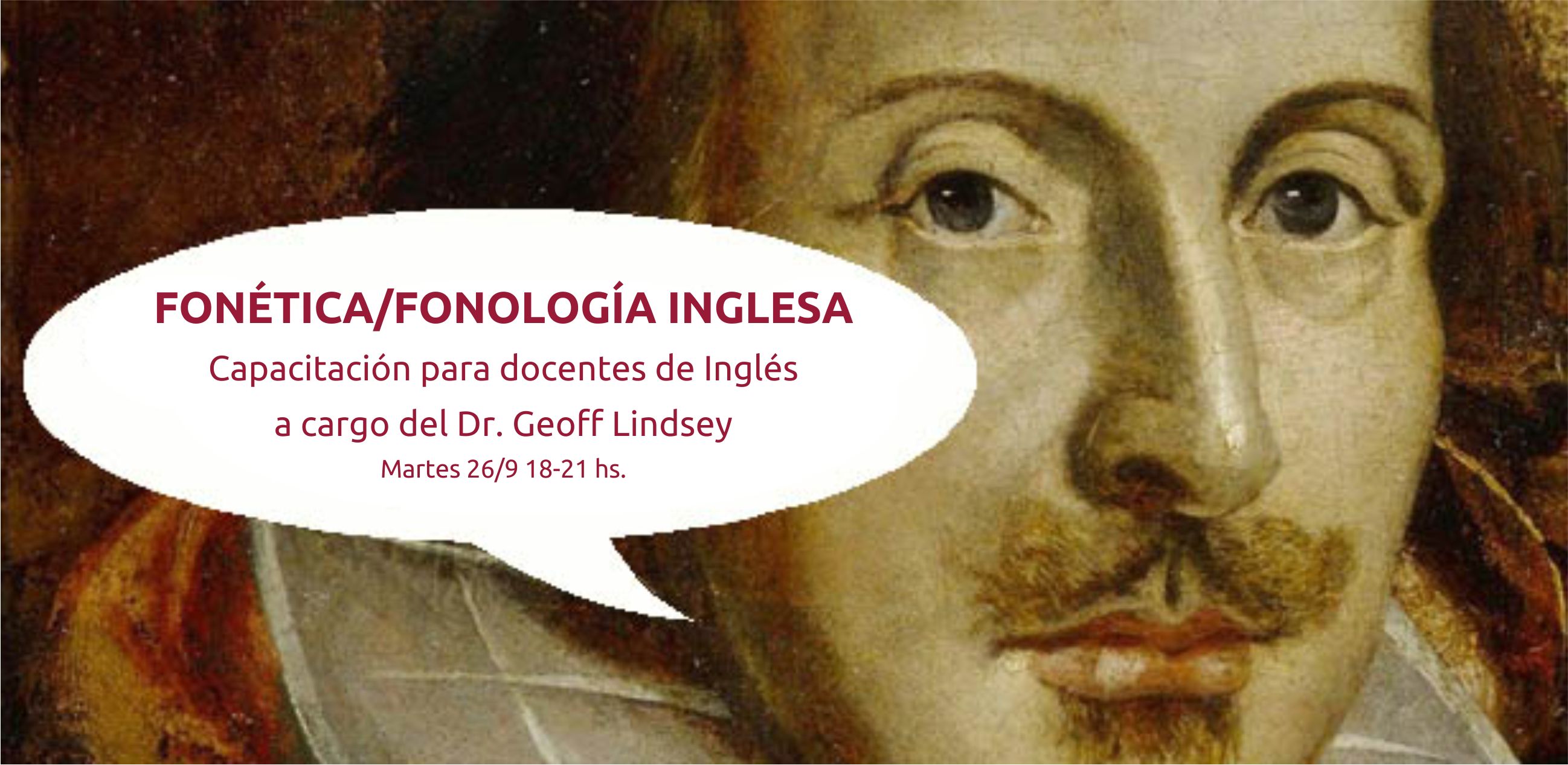Fonética-Fonología Inglesa
Capacitación para docentes de Inglés a cargo del Dr. Geoff Lindsey

El Profesorado de Inglés del Colegio Ward organiza una capacitación no arancelada para docentes de Inglés, a cargo del Dr. Geoff Lindsey, el próximo martes 26 de septiembre de 18 a 21 hs. El encuentro está abierto también para estudiantes de 2º a 4º año del Profesorado.
La capacitación será sobre Fonética/fonología Inglesa, el Dr. Lindsey expondrá primero sobre “English after RP: Modern British Pronunciation” y luego sobre “Innovative Pronunciation Teaching: By-passing Habits in Speech and Phonetics”.
Se enviarán e-certificates de asistencia. La inscripción estará abierta hasta el martes 19/9. Para inscribirse, enviar un email a la Coordinadora del Profesorado de Inglés, Prof. Raquel Martínez: rmartinez@ward.edu.ar
¡no dejes de visitar nuestra web para conocer las próximas propuestas!
GEOFF LINDSEY
Dr Geoff Lindsey is Honorary Lecturer in Linguistics at University College London and Director of UCL’s annual Summer Course in English Phonetics. He holds a BA (First Class) from UCL and earned his M.A. and Ph.D. at the University of California, Los Angeles. He contributed to the 1989 revision of the International Phonetic Alphabet and has worked as a pronunciation consultant for Oxford dictionaries and as a forensic speech analyst. He is co-editor of the free online pronunciation dictionary CUBE. Geoff gives short courses and workshops in countries including the UK, Germany, Italy, Finland and Japan, and coaches online clients on all five continents. Geoff has also had a successful creative career as a screenwriter, writing many TV episodes (including BBC’s EastEnders) and the fantasy animated film Magic Piano, for which he also arranged the musical score, performed by classical superstar Lang Lang.
Innovative pronunciation teaching: by-passing habits in speech and phonetics
In conventional phonetics-based pronunciation teaching, the instructor typically tries to affect the student's habitual speech stream by referring to phonemic symbols and articulatory descriptions. Such methods are notoriously unreliable, commonly promoting confusion and boredom among students and teachers alike. An innovatory alternative is to by-pass both the habitual speech stream and the limitations of conventional phonetic descriptions. This talk explores techniques to transform speech habits, and areas of phonetics where conventional descriptions are unrealistic and/or out of date.
English After RP: Modern British Pronunciation
“Received Pronunciation” has loomed large in the teaching of English pronunciation. This talk gives an account of how, when and why RP arose, and how the major social and phonetic changes of the past half-century led to its decline. Today, pronouncing English strictly in accordance with the well known phonetic symbols of RP results in an accent which native speakers find so old-fashioned as to be comical. The talk describes some of the ways in which modern British speech differs from RP, in vowels, consonants and intonation. Some features present new challenges to the Spanish speaking learner, others make pronunciation considerably easier.

